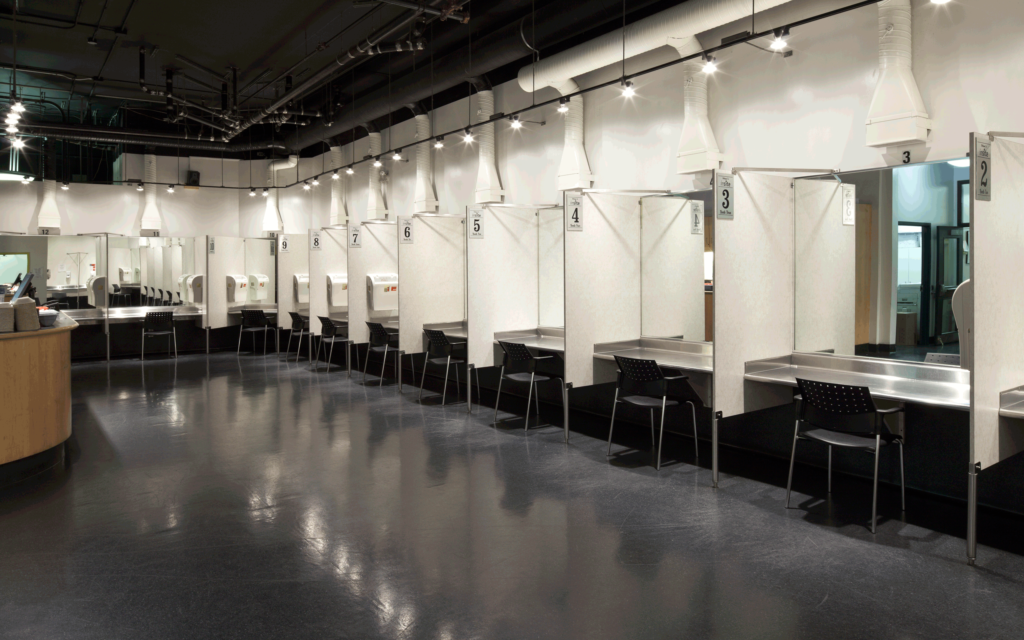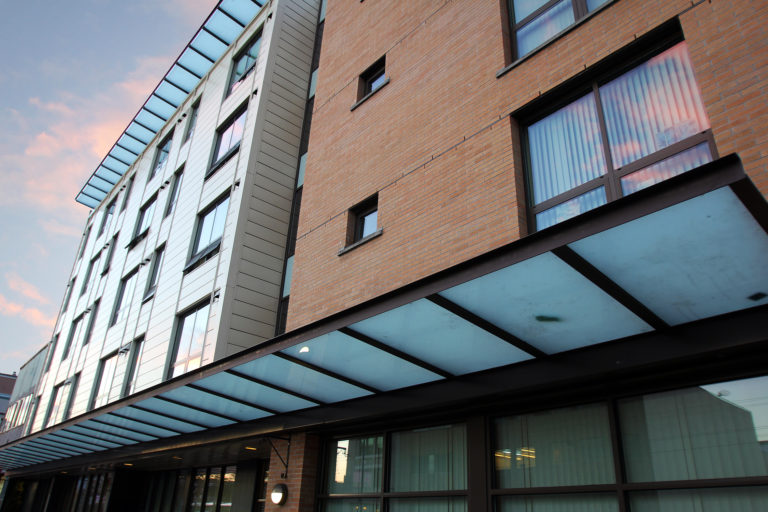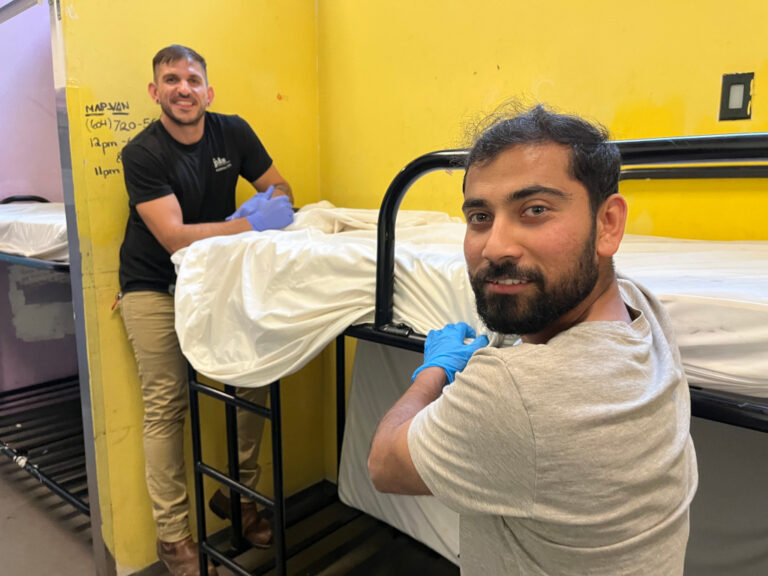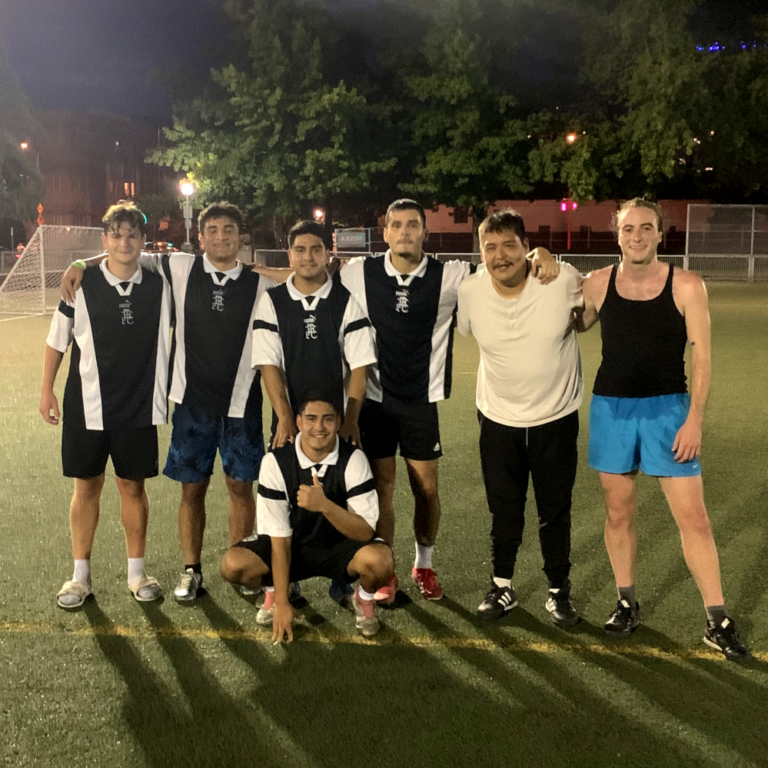When Insite opened in September 2003, it wasn’t just the first sanctioned site in North America for witnessed injecting. It was a paradigm shift.
People could walk through the doors and inject in a welcoming space, with nurses on hand to give advice on matters as immediate as avoiding infections or damaging veins. Participants could sit together over a coffee in the chill room, staffed by peers.
Former Insite manager Darwin Fisher described it best: “Insite is like a community centre for drug users that happens to also have clinical services. We’re subtly bringing healthcare to people.”
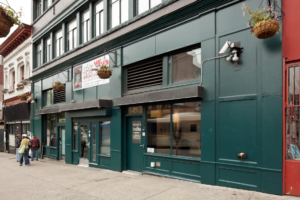 Insite is a frontline medical unit for people who often avoid traditional healthcare settings, usually from bad previous experiences. It’s a hub providing community connections for people who have reason to distrust institutions. It builds relationships with isolated people.
Insite is a frontline medical unit for people who often avoid traditional healthcare settings, usually from bad previous experiences. It’s a hub providing community connections for people who have reason to distrust institutions. It builds relationships with isolated people.
Dean Wilson (pictured, below) is a well-known figure in advocacy and support for Insite. He lobbied for the facility and fought to keep in open. Along the way, he’s featured in about 18 nonfiction books and too many research projects to recall.
His involvement goes back to the PHS-organized Out of Harms Way conference in 1997 which featured European harm reduction leaders talking about supervised consumption sites. He became president of the Vancouver Area Network of Drug Users in the early 2000s, and his campaigning for a consumption site included winning the support of Vancouver Mayor Philip Owen and being featured in the award-winning 2002 documentary Fix.
He was the first person through the door at the launch of Insite.
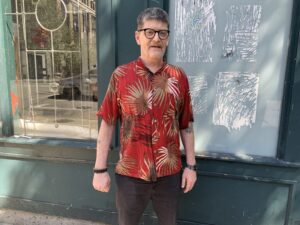 “It was a Sunday afternoon and I was in the chill room with [then] Executive Director Mark Townsend, and he said when do you want to open? I said, ‘Tomorrow morning.’ He said ‘What about now?’ and I said basically the sooner the better.
“It was a Sunday afternoon and I was in the chill room with [then] Executive Director Mark Townsend, and he said when do you want to open? I said, ‘Tomorrow morning.’ He said ‘What about now?’ and I said basically the sooner the better.
“We needed to show that it worked. I did my drugs, and they opened Insite. It was a soft opening that day.”
Dean was also prominent in the subsequent Supreme Court fight that kept Insite open and created a precedent for more sites to open in Canada.
“I get emotional when I talk about Insite, it’s always been a beacon. When the Supreme Court agreed that supervised injection sites were the right thing to do it proved everyone in the community was right.”
Dean is still a champion of Insite, even though he doesn’t do drugs any more.
“I used every month from August 1969 to May 2022. I stopped using drugs at age 66. I was getting old. And now I can cope with Dean Wilson.
“It was never about the drugs, it was about being Dean Wilson. I don’t need drugs to cope any more. I don’t miss any of it.
“People have to find their own way out. PHS never gives up on anybody, because you never know when they will figure it out.”
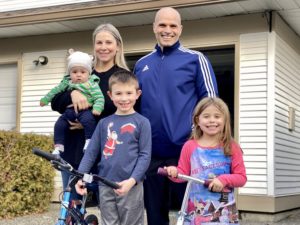 Another great public face for Insite is Guy Felicella (left), now a Peer Clinical Advisor for both Vancouver Coastal Health and BC Centre on Substance Use and an in-demand harm reduction public speaker.
Another great public face for Insite is Guy Felicella (left), now a Peer Clinical Advisor for both Vancouver Coastal Health and BC Centre on Substance Use and an in-demand harm reduction public speaker.
He spent two decades in the Downtown Eastside during which he survived homelessness, prison, five different bone infections and six overdoses. He was one of the first through the door when Insite opened.
“Before Insite, people who used drugs didn’t have a safe space,” he said. “With Insite, things changed from a criminal perspective to a health perspective, with the nurses present.
“They counted me visiting Insite more than 4,000 times over 10 years. Insite gave me community. I was welcomed there.
“That place never enabled my addiction, it enabled my life so I was able to figure it out.”
In addition to reversing overdoses, Guy says the Insite team saved his leg during a bone infection, showed him how to manage his then chaotic drug use, and then patiently developed connections that led him to overcome the crushing low self-worth he felt as a homeless drug user.
“These days I’m married with three kids, and I’ve got a job, but I’ve got the fondest memories of Insite. There’s no question that if that facility did not exist, I’d not be alive, and I’d certainly not have a decade sober.
“Basically, the thing about harm reduction is that it builds trust. That’s a powerful thing when you are using substances. You need someone to be supportive of you, to be willing to build a relationship. And that’s what Insite does.”
- Learn more about innovative PHS programs and our supportive housing in Vancouver and Victoria, B.C.
- Donate to continue innovative projects like these.
